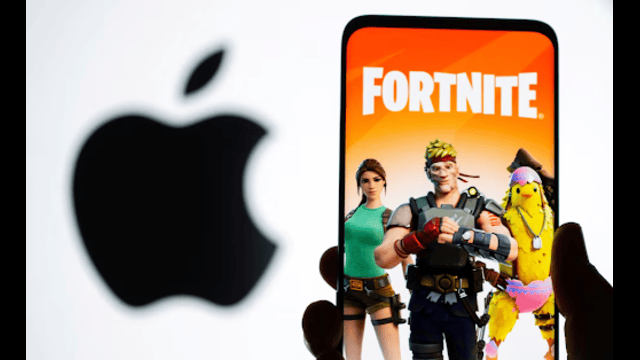
Thomas Fuller | SOPA Images | Lightrocket | Getty Images
After five years away, Fortnite is back on Apple’s U.S. App Store. On Tuesday, Apple approved the popular game from Epic Games, marking the end of a long and tense battle between the two companies.
Back in 2020, Apple removed Fortnite from its App Store. This happened because Epic Games changed Fortnite’s payment system to let players pay directly through the game, bypassing Apple’s usual payment method. Apple takes a cut of up to 30% on payments made through its system, and it didn’t approve this change. That led to Fortnite’s removal and a fierce legal fight between Epic and Apple.
The dispute took a big turn last month when a judge ruled that Apple can’t stop apps from linking users to external payment options or force those links to look a certain way. This decision was a win for Epic. Soon after, Epic submitted Fortnite back to the U.S. App Store, hoping to get it approved.
However, Apple didn’t immediately approve Fortnite. The company’s app review process took several weeks, creating frustration. Epic even took Apple back to court, demanding an explanation for the delay. A judge then ordered Apple to clarify why Fortnite hadn’t been approved yet or settle the issue quickly.
Apple is currently appealing this court decision. It also wants to pause some recent changes it made to the App Store, hoping to slow down how much control it loses. Apple did not comment on the situation when asked.
This court ruling has already affected other big apps. Companies like Amazon and Spotify quickly updated their apps to allow users to buy content via external links, something that was difficult before. For example, Kindle books can now be purchased inside the Kindle app on iPhones.
While Epic was banned from Apple’s developer program and lost its ability to update apps in the past, it found a way around in Europe. Thanks to a new law called the Digital Markets Act, Epic offers Fortnite through a third-party app store on Apple devices there. iPhone users can also play Fortnite using cloud gaming services. Even so, Apple tried to shut down Epic’s developer account in Europe but stepped back after pushback.
The fees Apple collects from its App Store are a huge source of income. These fees fall under Apple’s Services business, which includes things like advertising, warranty plans, and subscription services like Apple TV+. Apple reported nearly $27 billion in revenue from its Services sector in just the last quarter.
Fortnite’s return to the U.S. App Store marks a big moment in the ongoing fight over app store rules, user payments, and the power of big tech companies. Players can now enjoy the game again on their iPhones without needing workarounds or alternative methods.















